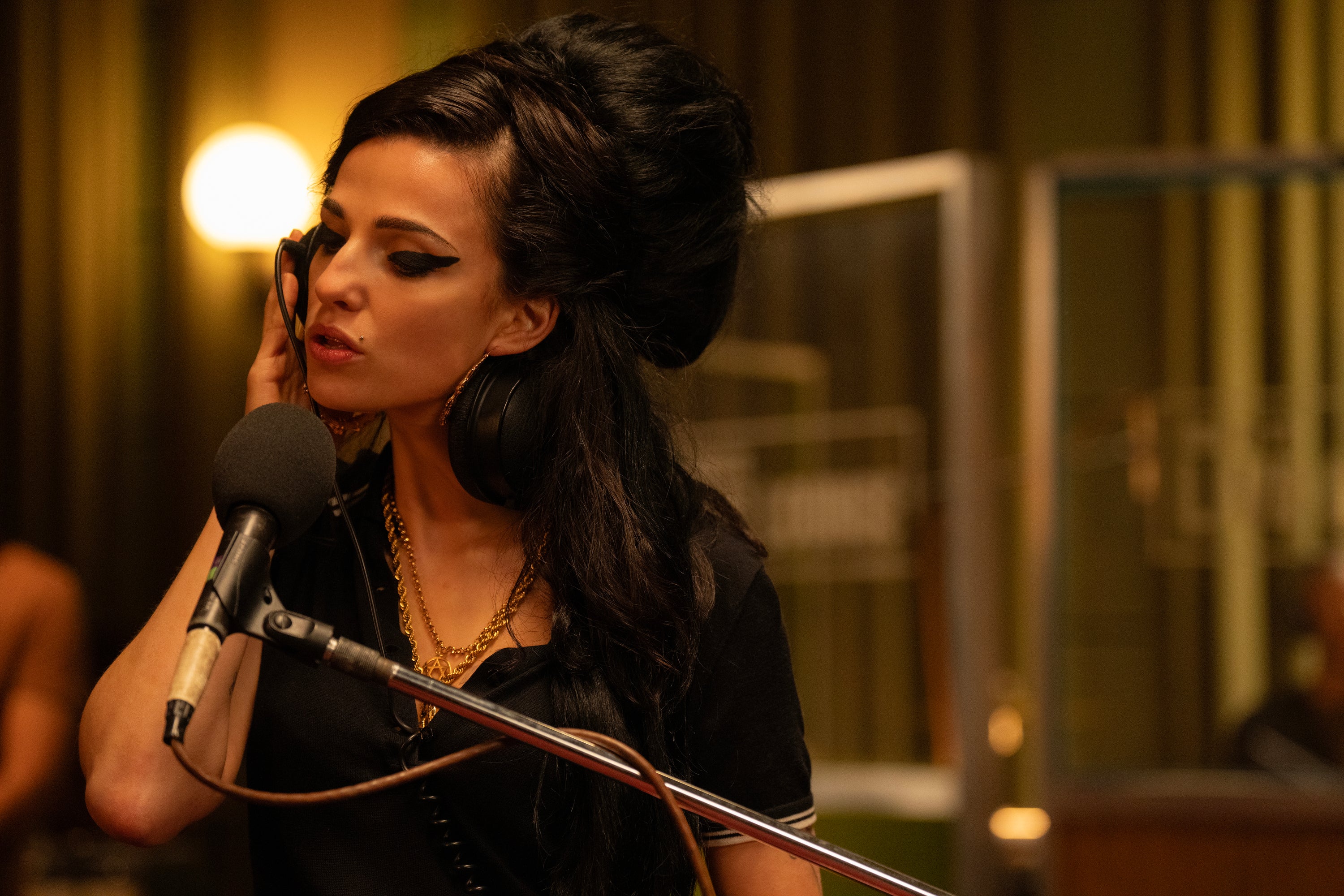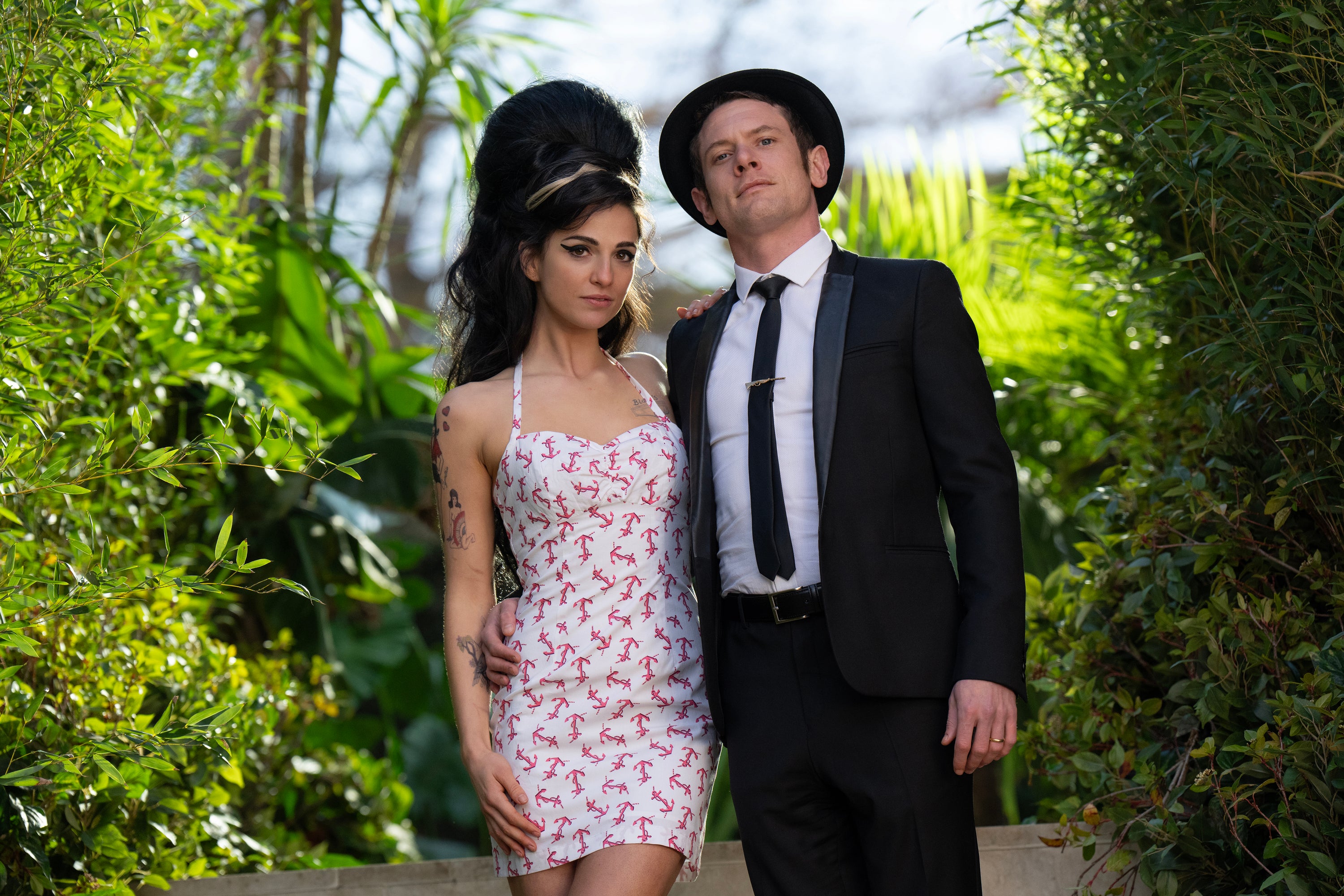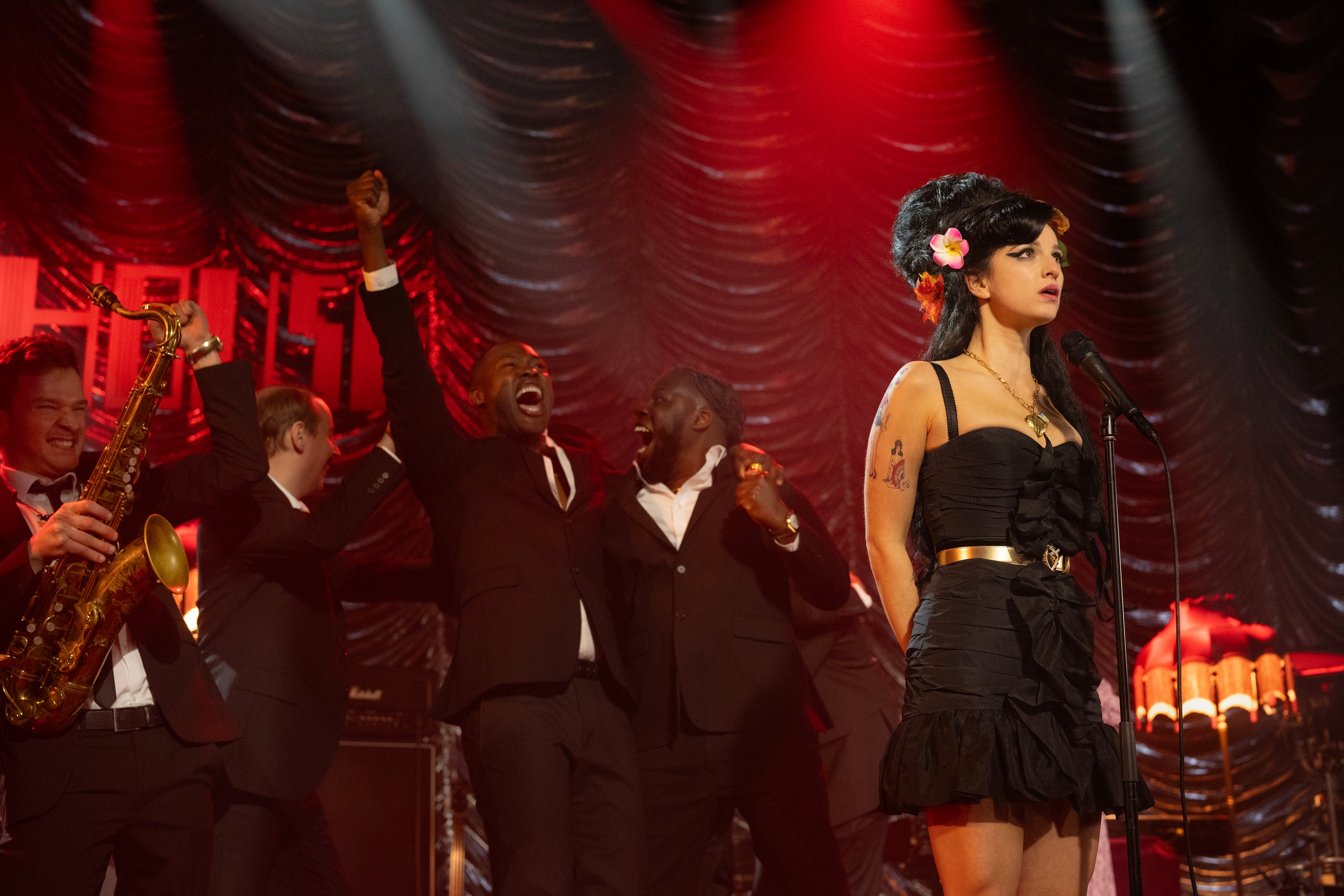Amy Winehouse biopic Back to Black derided – and praised – by critics as first reviews emerge
In her review for ‘The Independent’, critic Charlotte O’Sullivan said film was not as bad as some fans had warned
Critics are fiercely divided over the Amy Winehouse biopic Back to Black following its world premiere.
Directed by Sam Taylor-Johnson, the film stars Marisa Abela as troubled late soul singer, who died of alcohol poisoning aged 27 in July 2011.
In the run-up to its release, fans of the “You Know I’m No Good” singer shared their worries about the portrayal of Winehouse, with a recently released clip sparking a backlash online.
For The Independent’s critic Charlotte O’Sullivan, the film did not surpass some of the negative fan expectations, ultimately giving it a two-star review.
While praising “strong performances” from Abela and Jack O’Connell, who plays the singer’s one-time husband Blake Fielder-Civil, O’Sullivan stated that the film lacked enough darkness to do justice to Winehouse’s story.
“In years to come, you can imagine Back to Black screening on the TV, on Christmas Day, after a bumper episode of EastEnders,” she wrote. “Never mind the bits where Amy says ‘bollocks’. For all the swearing, this sanitised biopic is about as punk as pulling a cracker.

“Back to Black is a fitfully enjoyable little package that will do wonders for the careers of Abela and O’Connell. But unlike Winehouse’s oeuvre, it’s not worth taking seriously. It’s just too afraid of the dark.”
Hamish Macbain at the Evening Standard was even less receptive to the film, giving it a one-star review and claiming that he found one particular moment so bad it made him “physically gasp in horror”.
“Before we even get to the deep moral and ethical problems, Back to Black is, on the most basic of levels, a poor, poor piece of filmmaking,” the review begins. “The schtick being rolled out is that it is an impressionistic, abstract take on the life of Amy Winehouse based on her lyrics.”

Watch Apple TV+ free for 7 day
New subscribers only. £9.99/mo. after free trial. Plan auto-renews until cancelled.
ADVERTISEMENT. If you sign up to this service we will earn commission. This revenue helps to fund journalism across The Independent.

Watch Apple TV+ free for 7 day
New subscribers only. £9.99/mo. after free trial. Plan auto-renews until cancelled.
ADVERTISEMENT. If you sign up to this service we will earn commission. This revenue helps to fund journalism across The Independent.
Elsewhere, The Guardian had a much more favourable take on the film, with critic Peter Bradshaw giving it four stars.
While calling Back to Black “easily” Taylor-Johnson’s best work – the director previously made the first Fifty Shades of Grey film – Bradshaw praised it as an “urgent, warm, heartfelt dramatisation”, and hyped Abela’s “engaging and sweet-natured” performance as Winehouse.

He wrote: “Back to Black is essentially a gentle, forgiving film and there are other, tougher, bleaker ways to put Winehouse’s life on screen – but Abela conveys her tenderness, and perhaps most poignantly of all her youth, so tellingly at odds with that tough image and eerily mature voice.”
For The Telegraph’s Tim Robey, Back to Black had a “cautious gloss” that led to the star’s story being “perhaps less enlightening or truly tragic than it might have been”.
Still, his three-star review also commends Abela’s performance, and defends the choice to have her sing instead of using a dub of Winehouse’s real-life vocals.
“Had they dubbed in Winehouse’s real voice, it would have sabotaged the intense, bolshy presence that really suits Abela for the role,” Robey wrote.
However, in Digital Spy’s review, critic Ian Sandwell claimed that the biopic did not hit all the right notes, and suffered due to its avoidance of the more tragic elements of Winehouse’s life.
“As an approach to telling Amy’s story, it’s admirable to not focus on tragedy, but it just doesn’t work here,” the review reads. “This is especially the case as the movie has to include some of that tragedy, from Amy’s struggles with addiction to the toxic relationship with Blake. It’s a tonal mismatch though, so it ends up feeling sanitised.”

In the US, Variety called the film “forthright and compelling”, with reviewer Owen Gleiberman praising the interpretation of Winehouse’s album, also titled Back to Black.
“The film’s snaky on-and-off power begins with the British actor Marisa Abela, whose lead performance nails Amy Winehouse in every look, mood, utterance, and musical expression,” he wrote, before dismissing prior online criticisms of Abela’s performance.
“So let me say for the record: That’s just nuts,” he wrote. “Abela’s Amy is an authentic force of nature, and every inch the Winehouse we know from her ecstatic, tormented, spilling-over-the-sides, saturation-coverage-by-the-media image.”
Back to Black is in cinemas from Friday 12 April.
Join our commenting forum
Join thought-provoking conversations, follow other Independent readers and see their replies
Comments
Bookmark popover
Removed from bookmarks